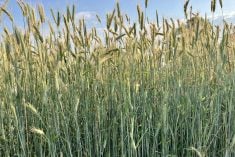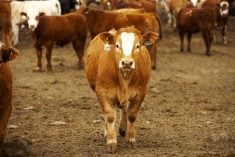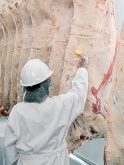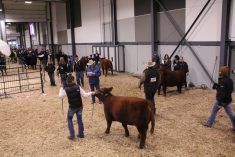When Haley Scott reflects on how she arrived at her current position in meat production research, it all makes sense.
An opportunity to study at an agriculture program in New Zealand was just one of the experiences that led her to blend her background in cow-calf production and passion for science into a promising career.
“I think it was a combination of getting that taste for the science behind agriculture but a combination of growing up around it,” said Scott. “I just fell in love with the rural lifestyle and cows and science, and I think I found a pretty good way to combine all those things.”
Read Also
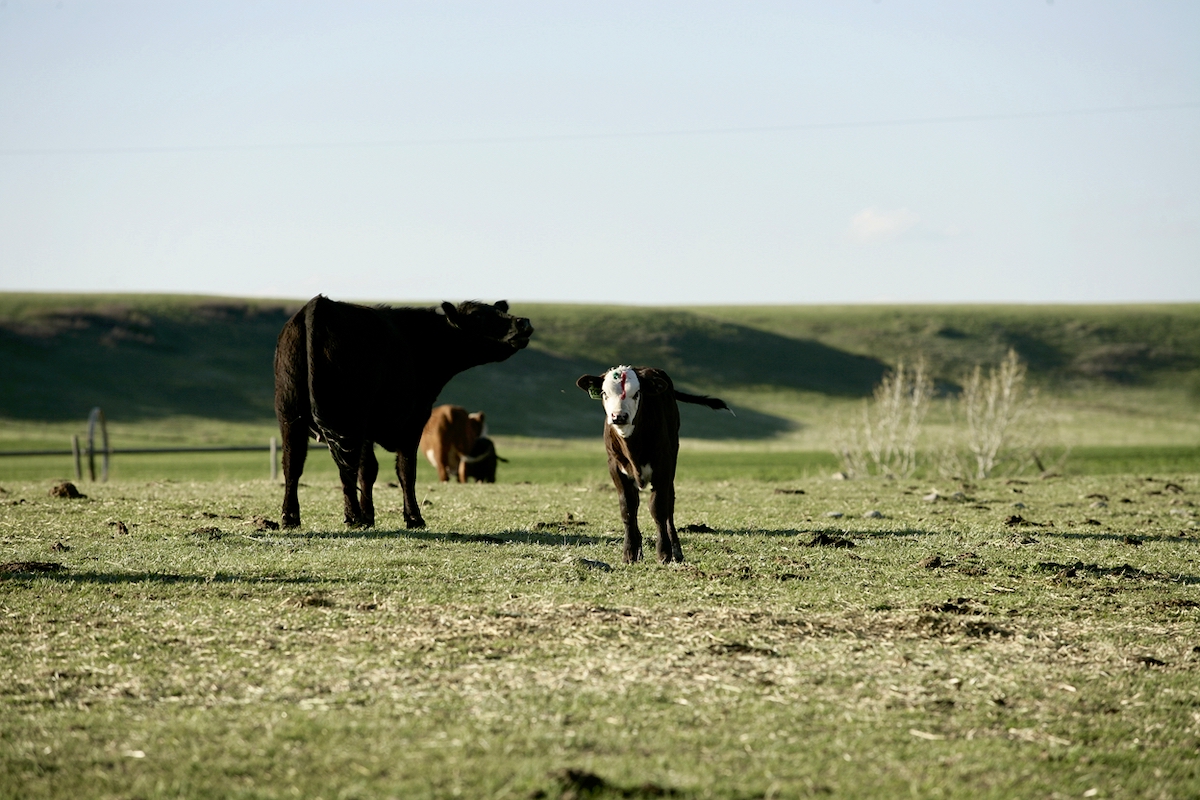
Body condition, nutrition and vaccination for brood cows
One of the remarkable events of the past century related to ranching has been the genetic evolution of brood cows….
Scott was raised on her family’s cow-calf operation west of Lacombe, Alta. Growing up, her family had a primarily Blonde d’Aquitaine herd, and currently they raise commercial Red Angus cattle.
“Like most kids I helped with the day-to-day chores growing up,” she said. “I’ve always loved animals and especially cows and horses, and I did a 10-year run with the horse 4-H program.”
After high school, Scott began studying biology at university, then spent a semester abroad in New Zealand, which helped inspire her to alter her path. Upon returning home, she changed her program and obtained an animal science degree at the University of Saskatchewan before going on to receive a graduate science degree in bovine parasitology.
Today, Scott works at the Agriculture and Agri-Food Canada Lacombe Research Centre as a research technician. She has held this position for two and a half years, working in the Livestock Carcass Merit and Market Competitiveness program.
“I’m part of a team of scientists and research techs, and we work in the beef industry and other red meat industries, mainly beef and pork, to provide research and a scientific foundation for improvements and provide data for the Canadian beef industry,” she explained. “We’ll collect data on beef quality standards in our facility, everything from meat colour to marbling to grading to fat and protein composition.”
Scott credits working towards her master’s degree as an experience that shaped her career path. “I really enjoyed the part at the end where I got to go to some conferences and make posters and present my research,” she said. “Now that I’ve got a career in that area, that I’m more the hands-on, technical support staff is a pretty good fit for me.”
Scott is also a certified grader through the Canadian Beef Grading Agency. As one of two beef graders at the Lacombe Research Centre, she determines the quality and yield grades for each carcass that comes through this federally inspected facility.
“Our beef research program that I’m with is a support system for the Canadian Beef Grading Agency and providing the science behind how we determine yield grades and quality grades,” she explained.
To become certified as a beef grader, Scott passed a written exam and went through hands-on training at a number of commercial abattoirs. “There’s also an intensive practical hands-on, and then you are graded, pun intended, on your grading skills. So I would stand in the facility and grade carcasses as they went by, and a very experienced grader was right behind me scoring me on my ability to correctly identify the grade.”
In order to learn more about this part of the beef industry, Scott was selected to participate in the Cattlemen’s Young Leaders (CYL) program in 2019, with Michael Young, president of Canada Beef, as her industry mentor. As part of the program, she had a couple of travel opportunities prior to pandemic-related travel restrictions, including travelling to Denver’s National Western Stock Show.

The highlight of her CYL experience was having the opportunity to attend a conference on red meat marketing and improvement with Young in Nashville, Tennessee. “I learned a lot about retail meat packaging and marketing strategies,” she said.
“I did not think I would end up in this area of the beef industry, in meat production, and I totally jumped in brand-new two and a half years ago, so it’s been really interesting and helpful to have a mentor in the CYL program that can help me learn a bit quicker.”
From her experiences in this field, Scott views communication with consumers about the technologies in development as a particular challenge for the Canadian beef industry, but one that offers opportunities for deeper connection and understanding.
“One of the challenges will be introducing some of these new, science-based technologies into beef production and food safety,” she said.
“Whether the technology is at the cow-calf stage, at the feedlot stage, or at the retail cut beef marketing stage, I think we need to be more open and transparent with the consumer about different processing techniques and how and why they can improve food safety and consumer safety.”
Currently, Scott is enjoying her role with AAFC and likes being close to home and family. “I definitely want to continue to improve my knowledge of the red meat industry, and I’m really interested in how improving Canada’s beef quality and maintaining that can really help improve Canadian beef products for domestic and international markets and how we can communicate that to other markets, that Canadian beef is the best you can get.”
Along with this perspective comes her interest in helping to educate visitors to the Lacombe facility about this part of the beef industry, and Scott noted that these are her favourite days at work.
“I especially enjoy the 4-H groups that get to come through because they get to see the other side of beef production and the science that goes into carcass cut-outs and retail beef marketing.”





